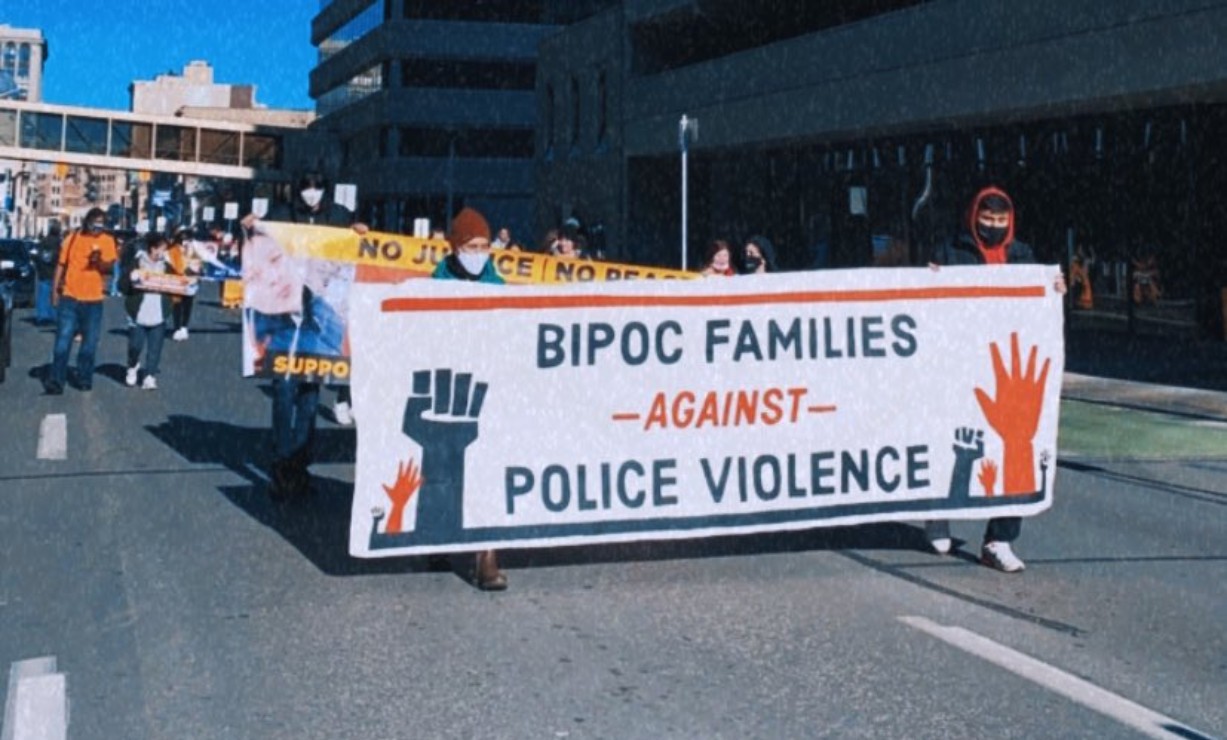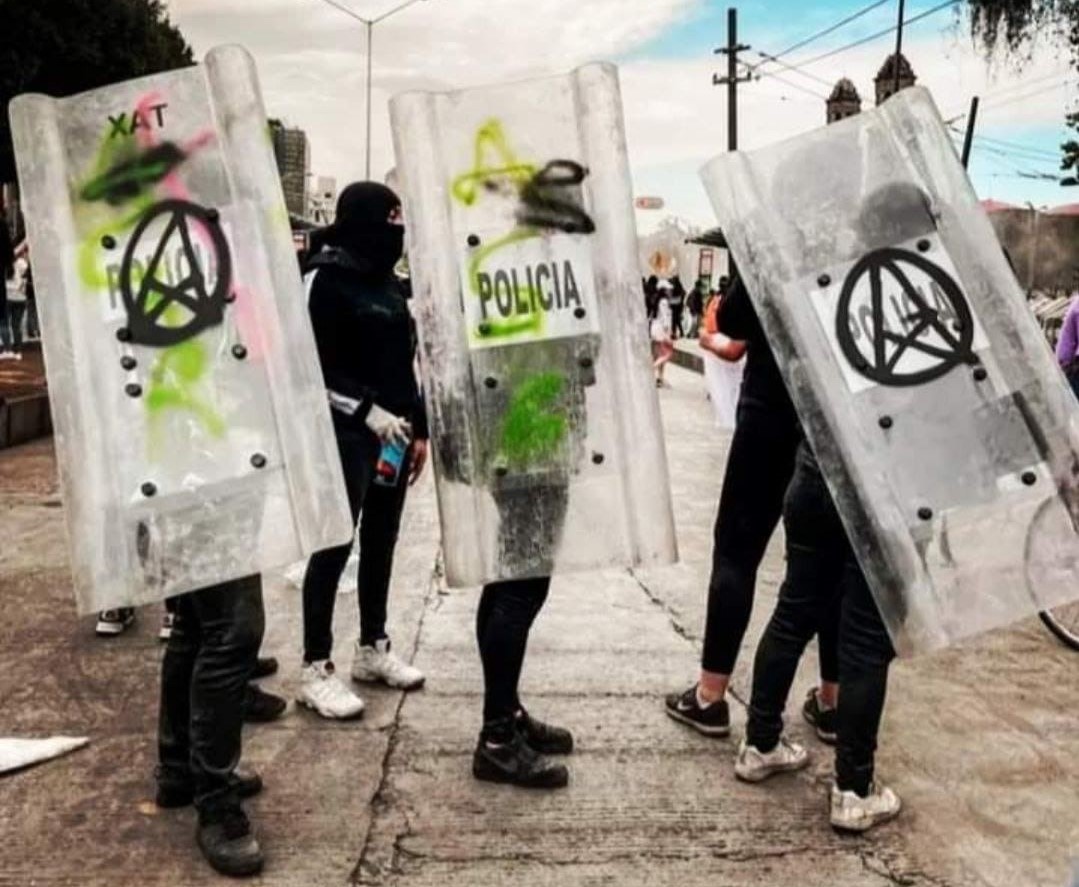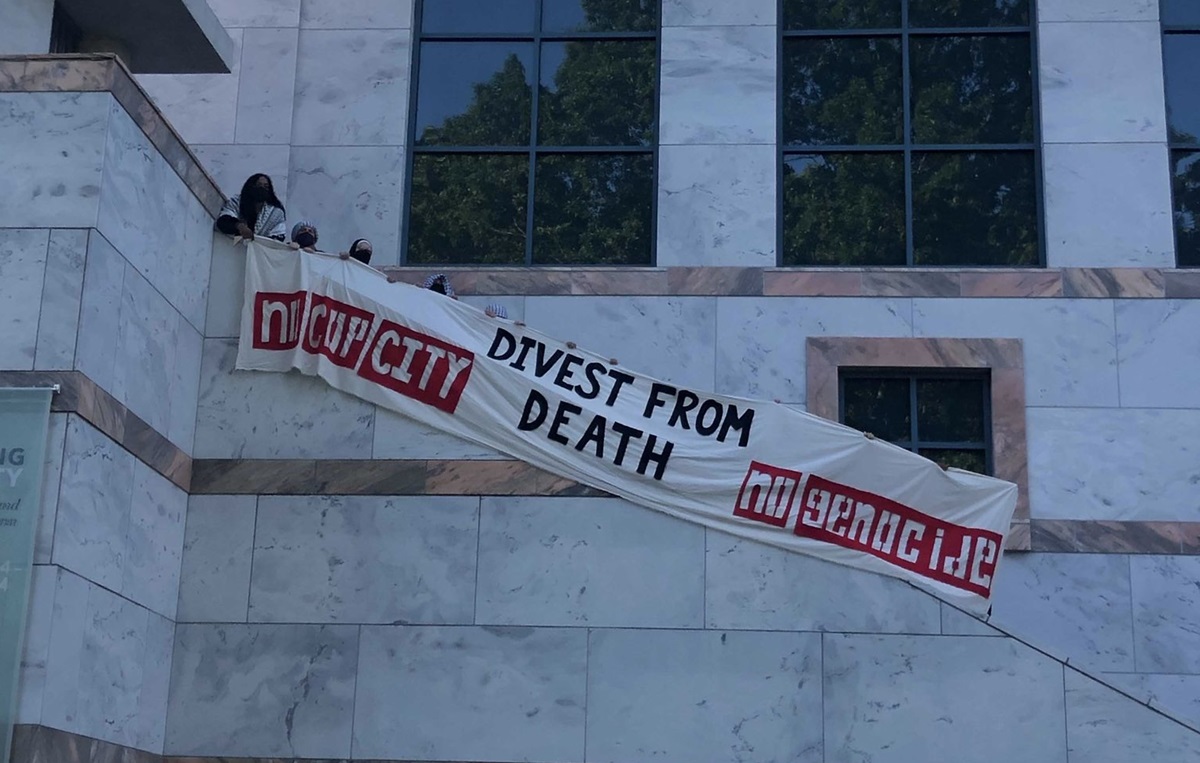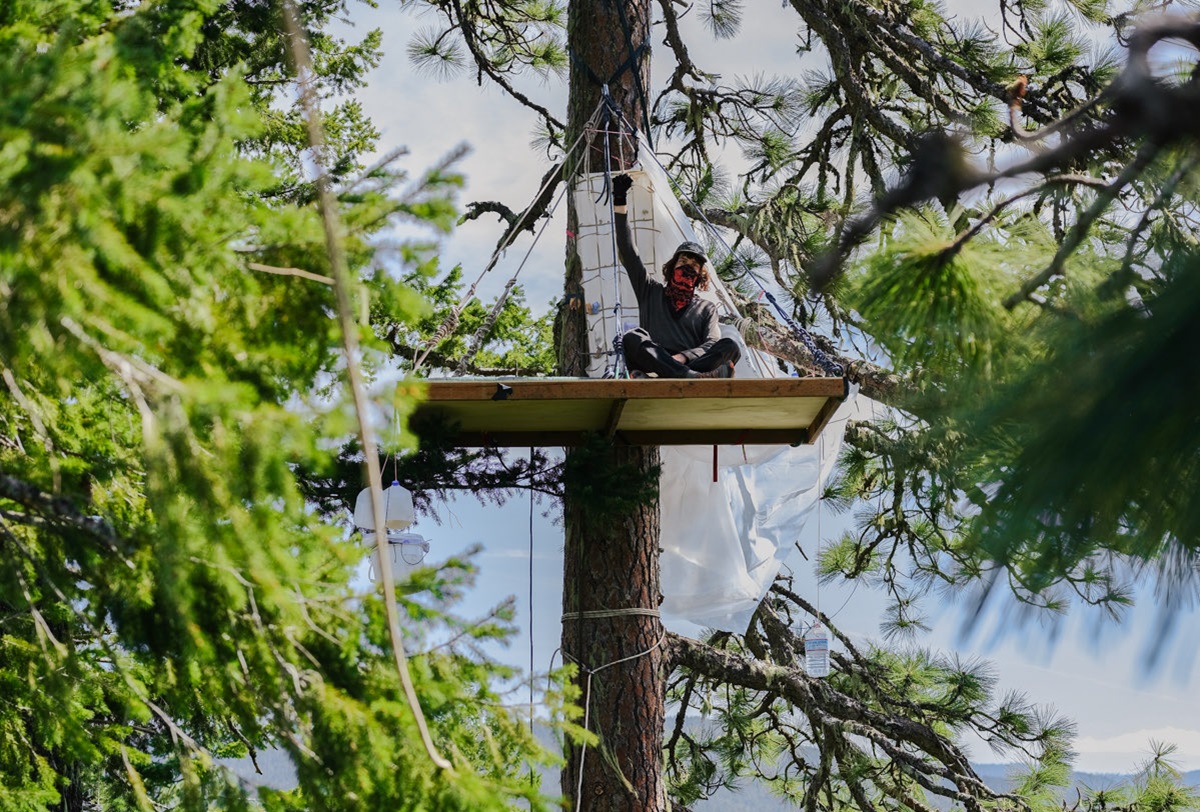Filed under: Canadian Tire Fire, Featured

It’s been another week where our attention has been turned to settler colonialism and the many forms of resistance to it. The effects of the hierarchical, inhumane, colonial court systems are being felt throughout the country in the form of evictions and police shootings. Flags that Trudeau promised would stay at half mast will be raised in time to be lowered for nationalist celebrations. Meanwhile, people are fighting back for their self determination, existence as peoples and for a livable world. Politicians and business elites however have been meeting in Glasgow, coming up with emission goals they have no intention of keeping and otherwise doing their best to stonewall the radical change our society needs at the COP26 summit.
Read on for the news of the week!
Coyote Camp Going Strong 40+ Days in, Cops Turned Away Again
Jailed Wet’suwet’en Chief Has a Warning for Coastal GasLink via @TheTyee https://t.co/LIR3Opr2Iz
— Likhts’amisyu (Fireweed) Clan (@Likhtsamisyu) November 3, 2021
Coyote Camp, the re-occupation of a Coastal GasLink (CGL) drill pad on Gidimt’en territory, has surpassed 40 days and is getting ready for winter. In a communique put out to celebrate the one-month anniversary of the re-occupation, Coyote Camp said:
One month ago, we reoccupied Ludhis Bin territory by Wedzin Kwa, where Coastal GasLink pipeline wants to drill underneath our sacred headwaters. There’s now a clan cabin on the drill pad site where CGL plans to drill under Wedzin Kwa. In 2010, there were 13 proposed pipeline projects to go through Wet’suwet’en territory. Investors were forced to pull out of these mega-destructive projects through our territory and CGL pipeline is the only one left, from Enbridge, Pacific Trails Pipeline, Spectra, Pembina, and several others. Within the first days of the reoccupation there were violent arrests and police brutality on unarmed welcome guests on Cas Yikh yintah. We put a callout for solidarity from our neighboring nations and from our allies. The Haudenosaunee showed up and walked the RCMP out of the territory and they haven’t returned.
Following the militarized raids in 2019 and 2020 on Gidimt’en territory, callouts for solidarity sparked coast-to-coast actions crippling the “Canadian” economy and shutting down major infrastructure across so-called “Canada ”. We have a sacred responsibility to our children and to protect Wedzin Kwa, our clean drinking water, our salmon, and the right to be Wet’suwet’en, for all future generations. We call on our allies everywhere, to rise up, stand up, fight back! Put pressure on investors, on industry, and the government to put an end to the Coastal GasLink pipeline. All out for Wedzin Kwa!
You can read the full communique here.
When Likhts’amisyu Chief Dst’hyl was arrested on his territory on October 27th for decommissioning CGL equipment, blockades were quickly established and lit on fire to prevent his removal from the territory. While he was eventually removed to the Houston RCMP detachment, the action was a strong response to the RCMP escalation. Anarchists on the Yintah recently put out a detailed explanation of the events of that day. The action report reads in part:
At several points along the Morice West FSR, on Gidimt’en territory, trees were felled and other detritus was put into the road, along with improvised caltrops. This only occured once Dtsa’hyl was arrested and reinforcements were deployed by the RCMP. Over a dozen CGL workers were successfully turned around at one side of the blocks, after a tow rope they were using to pull away a tree was severed with an axe and they were instructed to return to their vehicles. On the other side of the blockade several security workers were also approached by people in bloc which resulted in their immediate retreat. The space was held while other tactics were deployed further down the road, and when it was clear that heavy machinery and RCMP were nearing the front lines to remove the debris, a blockade was set on fire and Gidimten supporters evacuated into the woods and safety.
The fight is just beginning. Solidarity with Dtsa’hyl. Solidarity with Likhts’amisyu. Solidarity with Gidimt’en. Solidarity with all Indigenous people fighting for their land and water. We keep us safe.
A few days after the release of Dst’hyl, and of Kolin Sutherland-Wilson who was arrested at the same time, a small group of RCMP attempted to enter Coyote Camp. Echoing the fashion in which they were turned away last month by Haudenosaunee land defenders, the police were once again turned away by camo-clad camp security.
The RCMP attempted to come in to Coyote Camp and failed, for the first time since they were walked out by our Haudenosaunee relatives.
We will not allow it. We can not. Our responsibilities are too great. #AllOutForWedzinKwa#COP26#TogetherForOurPlanet pic.twitter.com/sG3BeSUy0n
— Gidimt’en Checkpoint (@Gidimten) November 3, 2021
Despite the repeated denial of access to the camp, the RCMP have not given up and has been observed patrolling the area in recent days. For updates on the situation on the ground, follow @Gidimten and @Likhtsamisyu on Twitter, or visit https://yintahaccess.com or https://likhtsamisyu.com/
Decision on Hamilton Encampment Evictions Injunction
In August of this year, the City of Hamilton officially repealed a policy put in place early in the pandemic allowing individuals to camp in public spaces for up to 14 days. The policy acknowledged the fact that shelters are inadequate for meeting the needs of many people experiencing homelessness. While the 14-day limit itself created challenges for people trying to establish a liveable space in parks and public spaces, it offered a small amount of reprieve. The repeal of the of the encampment protocol was criticized heavily by people experiencing homelessness and their allies, who argued that shelters remain inadequate as housing solutions.
Yesterday, the City announced that it would be returning to "pre-pandemic enforcement of camping bylaws" in #HamOnt, which will prohibit encampments on all City property, including public parks, starting August 30. This is not a solution to the ongoing housing crisis in our city.
— Hamilton Encampment Support Network (@HamOntESN) August 10, 2021
On November 2nd, the Supreme Court of Ontario ruled that the City could repeal the protocol and could continue to enforce the bylaw, evicting and ticketing those living in parks. In response, the Hamilton Community Legal Clinic applied for an interim injunction to stop the City of Hamilton from repealing the policy and enforcing the City property camping bylaw. The application was filed on behalf of five people currently experiencing homelessness in Hamilton. Prior to the ruling, the Hamilton Encampment Support Network put out a statement emphasizing that regardless of the outcome, the City continues to fail those experiencing homelessness. The statement reads in part:
The legal system is a product of neocolonial structures and logics that have enabled the theft of land, and the exercise of power over land. This means, in part, that the legal system is always the authority to determine who gets to live on a specific part of land. The encampment protocol still requires encampment residents to move, under the guise of a balanced interest between members of the public and the individual needs of the residents. The existence of this protocol only provides residents with notice to move, and parameters by which the City will engage in the removal of their homes, belongings and dismantlement of communities.
After the court ruling, the City of Hamilton was quick to release a statement saying that they would be returning to enforcing park bylaws. Within 24 hours, bylaw officers had visited parks across the city giving residents 2 hours’ notice to move. The Hamilton Encampment Support Network has reinforced their commitment to supporting those facing encampment evictions.
Less than 24 hours after the court ruling, the City has sent bylaw and police across #HamOnt giving residents 2 hours notice to move and trashing their belongings. Temperatures are expected to drop below Soo . If you hear of an encampment eviction happening, let us know. pic.twitter.com/4bL3nNzy3Y
— Hamilton Encampment Support Network (@HamOntESN) November 3, 2021
Another Deadly Month of Police Violence
This month’s summary of police-related deaths by the Media Co-op showed that October matched September as the deadliest month for policing this year.
The summary read in part:
In October, four people died in police custody. Two people were shot and killed. At least one person died after a taser deployment. At least six people in crisis died during police actions in which it is alleged they took their own lives with police present.
Toronto Police Service officers were involved in three deaths. RCMP were involved in two deaths. Two people died in police custody in Saskatchewan.
On November 6, people held a BIPOC Families Against Police Violence rally in Winnipeg. Over 200 people marched through the streets, ending at the Manitoba provincial legislature. One of the organizers was William Hudson, the father of Eishia Hudson, a 16-year old Indigenous girl killed by Winnipeg police last year. The rally brought together the families of many individuals killed by police, including Regis Korchinski-Paquet, jason Collins, and Chantel Moore. Ralliers called for the defunding and abolition of police.
"To me, this is medicine — having all the families here, all of you coming out here to show your support for the families," William Hudson said.https://t.co/3ACPxxo14g
— Critical Criminology (@critcrim) November 6, 2021
Finally, this past week the Province of Saskatchewan followed Nova Scotia and Alberta in announcing their intention to look into creating a provincial police force. Multiple provinces have cited cost-effectiveness as a key consideration. Provinces pay for 75% of the costs associated with the RCMP in a given province, with the the federal government providing the other 25%. The cost is further divided between municipalities and the province for municipalities that use the RCMP instead of their own police force. In the same vein, the City of Surrey, BC, replaced the RCMP with a municipal police force in August of this year.
In Alberta, a report was publicly released on October 29th showing that switching to a provincial force could cost millions more dollars per year, and would result in a four percent increase in officers. One argument provided by the government for the switch would be more “culturally appropriate” services for Indigenous communities.
Of course, while the RCMP have a particularly sinister history in Canada, all police forces ultimately serve to uphold the same capitalist structure, with the same tactics of violence against racialized and other marginalized groups. Changes between forces only serve to advance politicians of the days’ interests and distract from the nature of the police, which is irredeemable to the core.




